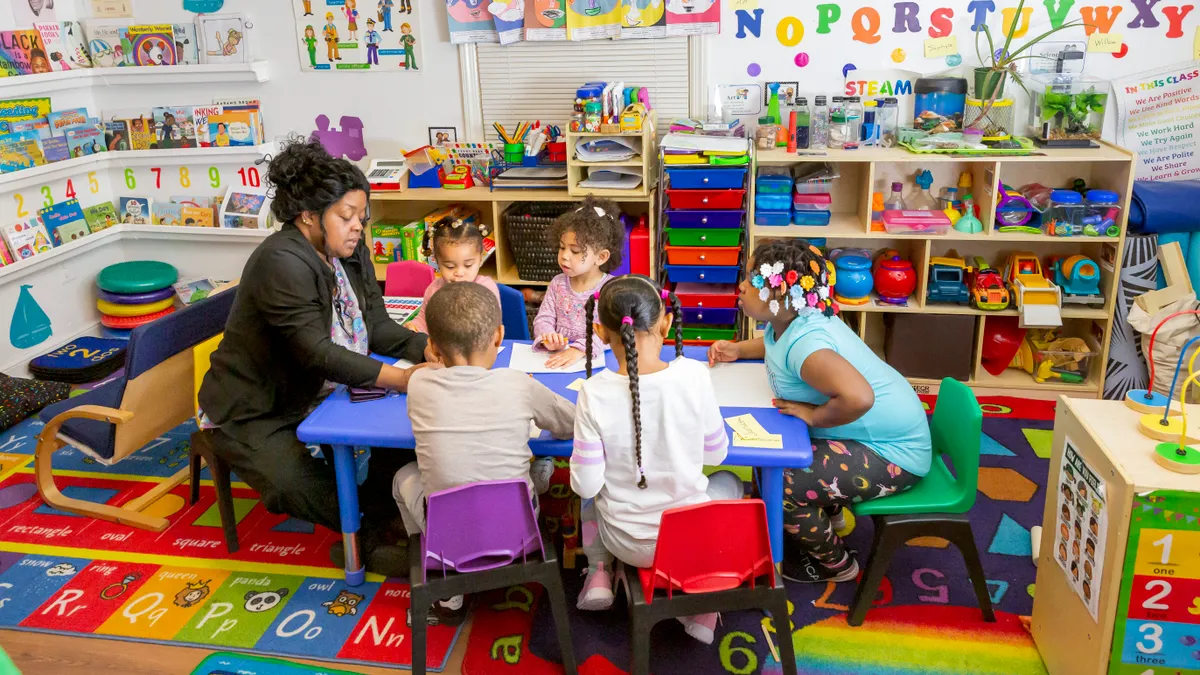Dive Brief:
- Public school enrollment is dropping in both large and small districts, NPR reports, with enrollment at the kindergarten level down an average of 16%.
- The trend is consistent across low-income, affluent, urban and rural districts, marking a reversal of the slow, steady increase in public school enrollment over the last 15 years.
- Enrollment declines are especially steeper for kindergarten and pre-K, and the trend could cost districts money, as many receive state funds based on their number of students.
Dive Insight:
Many of the country's largest districts began the year remotely. In Los Angeles, the biggest kindergarten enrollment drops are taking place in the poorest neighborhoods — which could be due to the fact there is often no full-time learning support at home for the youngest learners.
The uncertainty makes budget planning difficult. Enrollment numbers are one of the variables sending districts "in various states of limbo" with their finances, Marguerite Roza, director of Georgetown's Edunomics Lab, an education finance research center, told Education Dive in late September.
In Washington state, where public school enrollment is down 2.8% since last year and kindergarten enrollment has plummeted by 14.1%, administrators worry the decline will mean a significant decrease in funding. The state also reported an increase of about 50% in enrollment in alternative learning experiences, from 30,000 to 44,000.
Kevin Brown, executive director of the Texas Association of School Administrators, told Education Dive districts will feel the impacts of dipping enrollment numbers if policies don't change. For now, the state is among others that are holding districts harmless for the declining number of students.
Because of these fluctuations, districts will likely need to redo their budgets several times throughout the school year, experts have warned. Budget cuts could lead to furloughs and layoffs.
Administrators hope attendance will improve once schools can return to in-person learning. Washington Superintendent of Public Instruction Chris Reykdal expects a boom in kindergarten and 1st grade registrations next year, when most expect in-person learning will resume.











